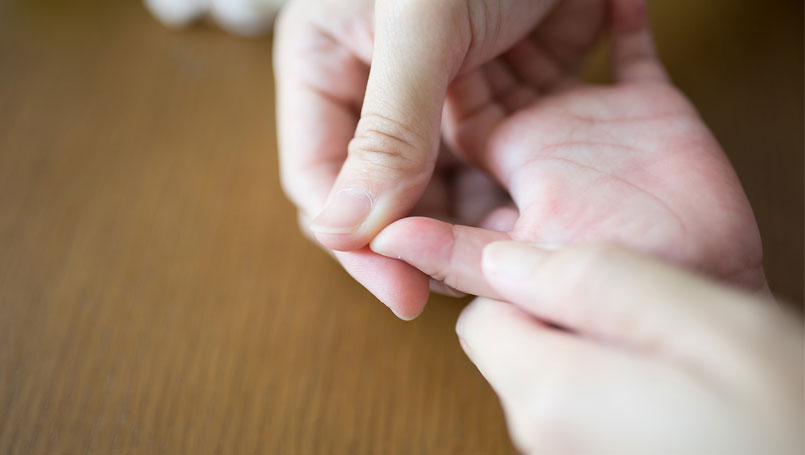
We asked Arsala Bakhtyar, M.D., Beaumont Children’s pediatrician, to shed some more light on hand-foot-and-mouth disease and the recent outbreaks:
How common is hand-foot-and-mouth disease?
Hand-foot-and-mouth disease is very common viral illness caused mostly by Coxsackievirus A16, but there are 40 to 50 more strains. Every year, about 200,000 cases occur in U.S., mostly in children under age 5.
Who is most susceptible to it and why? Is it worse at any particular age?
Children under the age of 10 are most susceptible (about 90 percent of cases occur in that age group), because they do not have protective immunity against the viruses that can cause this illness. It can also occur in adults, but less frequently. It can be worst in newborns and older adults.
If the virus spreads to the neurological system, it can cause meningitis and encephalitis resulting in confusion or seizures.
What are the symptoms to look for?
Symptoms often include:
- a very high fever
- tiredness
- decreased appetite
- sore throat
- painful sores in mouth, hands and feet
- blistering rash can occasionally extend to elbows, knees, buttocks and genital area
Symptoms do not occur all at once, but can come in stages.
How is it treated?
Hand-foot-and-mouth disease requires supportive care. There are no antivirals that are effective against it. Supportive care includes, reducing fever by antipyretics including acetaminophen or ibuprofen, administering cold liquids to children to soothe their throats and avoiding acidic or spicy foods, as they can make the mouth more painful.
How can it be avoided?
This illness is most contagious in the first week, however, the virus can stay in the intestines of infected people for months and can be spread. Hand washing frequently and avoiding close contact with those infected can help prevent the illness. If the illness occurs, discuss with your doctor about returning back to work, school or day care. As we’ve seen, this virus is highly contagious and spreads within days in places such as schools, dorms, day cares, etc.
What are some of the common misconceptions about the disease?
People think that after getting it once they are immune and can never get it again. Wrong! There are so many different viruses that can cause hand-foot-and-mouth that people can never become immune to it.
People also believe that adults cannot get it, which is, of course, untrue.
And just because your child does not go to day care, they’re still at risk. Playgrounds, malls, zoos or any place where kids are present are areas where the virus can be spread.
